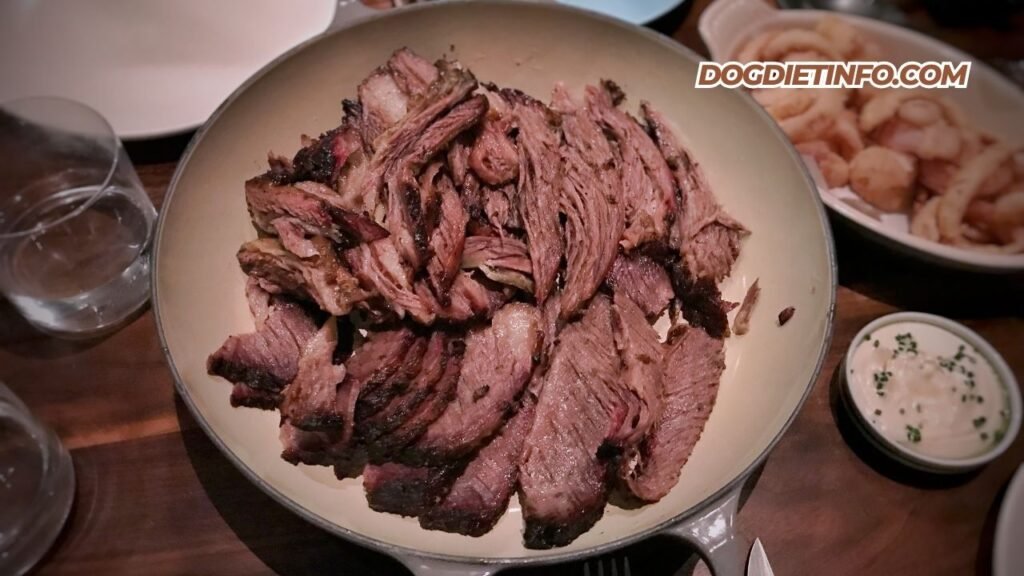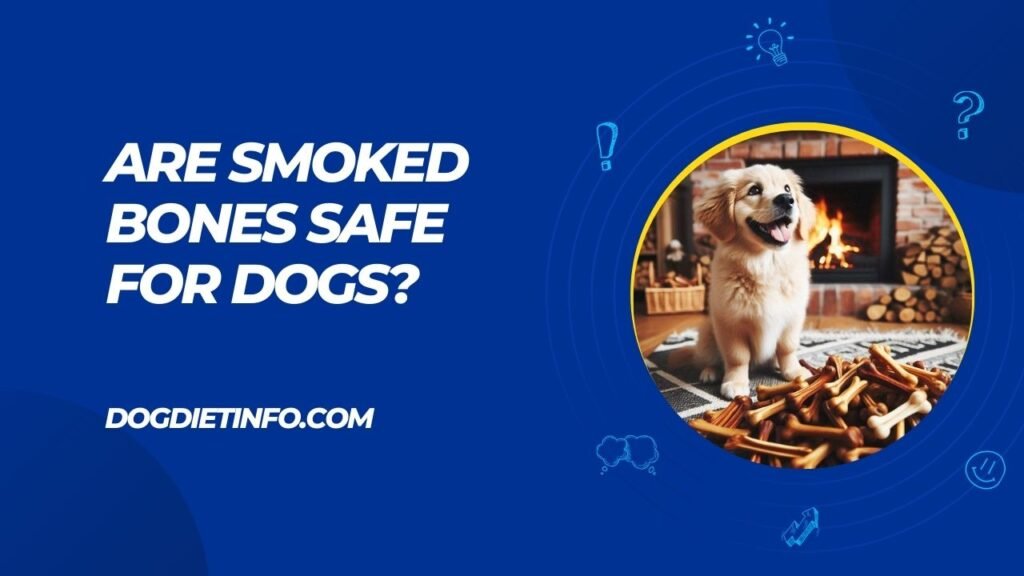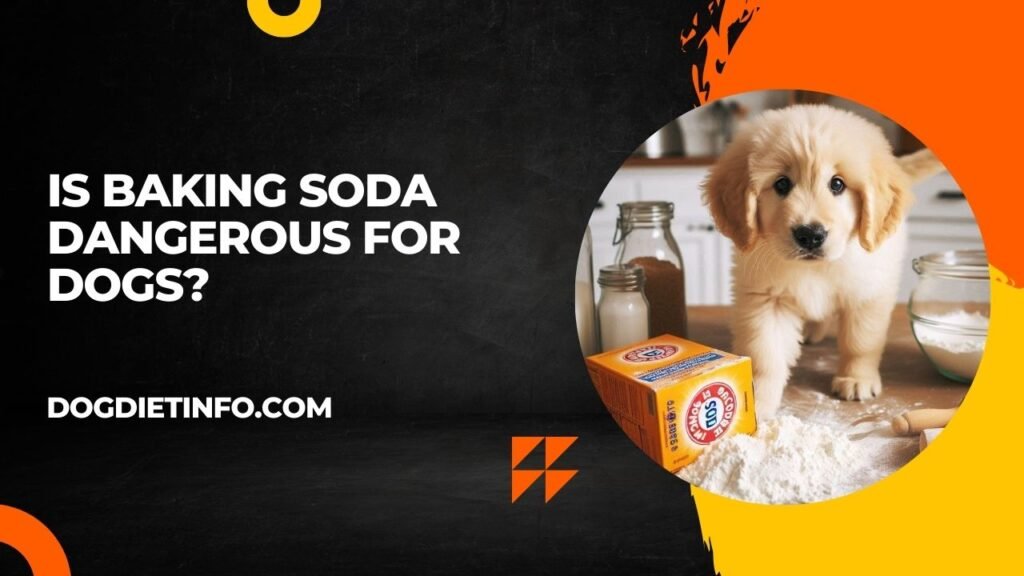Are Smoked Bones Safe For Dogs? Smoked bones can pose risks for dogs, such as splintering or causing digestive issues. It’s best to consult a vet before offering them to your pet.
Smoked bones have become a widely popular treat among dog owners, often seen as a natural and satisfying way to reward their canine companions.
These bones, typically made from beef, pork, or lamb, are commonly available in pet stores and are known for their flavorful taste and long-lasting chewability.
But while dogs may seem to love them, it’s crucial for pet owners to understand the potential risks associated with giving smoked bones to their pets.
Although they may offer certain benefits, smoked bones can also pose serious health hazards, including splintering, digestive issues, and bacterial contamination.
In this detailed article, we will explore whether smoked bones are truly safe for dogs, highlight their benefits, and provide insight into safer alternatives.
If you’re considering giving smoked bones to your dog, this guide will help you make an informed decision. [Are Smoked Bones Safe For Dogs?]
By the end, you’ll know whether these popular treats are worth the risk or if you should opt for safer alternatives that provide the same level of enjoyment without jeopardizing your dog’s health.
Contents
What Are Smoked Bones?
Definition of Smoked Bones
Smoked bones are animal bones, often from beef or pork, that have been slow-cooked or smoked to enhance their flavor and texture.
The smoking process generally involves heating the bones at a low temperature over several hours, which imparts a rich, smoky taste that many dogs find irresistible.
Unlike raw bones, smoked bones have undergone some form of heat treatment, making them less prone to bacterial contamination but more prone to becoming brittle.
Types of Smoked Bones
Smoked bones come in various sizes, shapes, and types, depending on the animal they come from. Here are some of the most common types of smoked bones available for dogs:
- Beef femur bones: Large and thick bones from cows, often filled with marrow.
- Pork rib or ham bones: Typically smaller than beef bones, but equally popular among dogs.
- Lamb bones: Often softer and smaller, suitable for smaller dog breeds.
Pet stores and online retailers often market these bones as long-lasting, durable treats that offer dogs both mental stimulation and dental health benefits.
However, before purchasing smoked bones, it’s vital to understand the potential safety concerns. [Are Smoked Bones Safe For Dogs?]
Are Smoked Bones Safe For Dogs?
The safety of smoked bones has been widely debated by pet owners and veterinarians alike.
While some dogs may chew on these bones without experiencing any issues, others may face serious health risks.
Risk of Splintering
One of the most significant dangers of smoked bones is the risk of splintering. Unlike raw bones, which tend to be softer and more flexible, smoked bones are often cooked at high temperatures, which can cause them to become brittle.
When a dog chews on a brittle bone, it may splinter into sharp fragments, posing a number of hazards:
- Mouth injuries: Splintered bones can cause cuts, punctures, or wounds in your dog’s mouth, tongue, or gums. [Are Smoked Bones Safe For Dogs?]
- Choking hazard: If a bone breaks apart into small pieces, your dog could accidentally swallow or choke on the fragments.
- Digestive tract injuries: Once ingested, bone splinters can puncture or tear the esophagus, stomach, or intestines, which may lead to internal bleeding and require emergency surgery.
The risk of splintering increases with smaller or thinner bones, such as pork ribs, which may break apart more easily than larger bones like beef femurs.
Risk of Digestive Issues
Even if the bone does not splinter, smoked bones can still cause digestive problems. Bones are dense and difficult for a dog to digest, especially when they have been cooked.
If your dog chews off and swallows large chunks of bone, it could lead to:
- Blockages in the intestines: A large piece of bone may become lodged in your dog’s digestive system, causing an obstruction. Symptoms of a blockage include vomiting, lethargy, loss of appetite, and abdominal pain.
- Constipation: Bone fragments can cause severe constipation, as the dog’s digestive system struggles to pass the hard material.
- Gastrointestinal distress: Dogs with sensitive stomachs may experience vomiting, diarrhea, or other symptoms of gastrointestinal upset after consuming smoked bones.
Bacterial Contamination
While the smoking process may reduce the risk of bacterial contamination compared to raw bones, it doesn’t entirely eliminate it.
Smoked bones can still harbor harmful bacteria like Salmonella or E. coli, especially if they are not stored properly. [Are Smoked Bones Safe For Dogs?]
This can pose a risk not only to your dog but also to anyone who handles the bones. Symptoms of bacterial infection in dogs include:
- Diarrhea or loose stools.
- Vomiting.
- Fever or lethargy.
If you decide to give your dog a smoked bone, it’s important to store it in a refrigerator when not in use and dispose of it after a few days to minimize the risk of bacterial growth.
Benefits of Smoked Bones
Despite the risks, smoked bones do offer certain advantages for dogs, particularly when it comes to mental stimulation and dental health.
Dental Health Benefits
Chewing is a natural behavior for dogs and can provide several important dental health benefits. [Are Smoked Bones Safe For Dogs?]
As your dog gnaws on a bone, the action of chewing helps scrape away plaque and tartar buildup from their teeth, much like a toothbrush would. Regular chewing on a bone or a safe alternative can:
- Reduce the risk of gum disease.
- Keep teeth cleaner and healthier.
- Strengthen jaw muscles.
However, it’s important to note that the dental benefits of smoked bones should be weighed against the risks of splintering and injury.
Mental Stimulation
Dogs need mental stimulation just as much as they need physical exercise. Chewing on a bone provides them with a way to stay mentally engaged, reducing boredom and preventing destructive behaviors.
This is especially beneficial for high-energy dogs or those that spend long periods of time alone. [Are Smoked Bones Safe For Dogs?]
Smoked bones can keep a dog occupied for hours, providing an enriching experience that stimulates their brain and helps relieve anxiety.

Alternatives to Smoked Bones
Given the risks associated with smoked bones, many veterinarians recommend safer alternatives that can still satisfy your dog’s chewing instincts. Here are some of the best options:
Commercial Chew Toys
There are many high-quality chew toys available on the market that are specifically designed for heavy chewers. [Are Smoked Bones Safe For Dogs?]
These toys are made from durable materials that can withstand even the most aggressive chewing without breaking into sharp pieces. Some popular options include:
- Rubber chew toys: Brands like KONG offer tough, non-toxic rubber toys that are ideal for dogs that love to chew.
- Nylon bones: These synthetic bones are designed to be strong and durable, providing long-lasting chewing satisfaction without the risks associated with real bones.
Raw Bones vs. Cooked Bones
Many dog owners and veterinarians advocate for raw bones as a safer alternative to smoked or cooked bones. [Are Smoked Bones Safe For Dogs?]
Raw bones are less likely to splinter because they maintain their natural moisture and flexibility. However, raw bones still carry a risk of bacterial contamination, so it’s important to handle them with care:
- Always supervise your dog while chewing on a raw bone.
- Store raw bones in the freezer until ready for use.
- Discard any uneaten portions after a few hours to prevent bacterial growth.
Bone-Like Treats
Several dog treat manufacturers offer bone-like chews that mimic the texture and chewing experience of real bones without the associated risks.
These products are made from digestible materials and are designed to provide the same satisfaction as real bones. Some options include:
- Dental chews: These are specially formulated to promote dental health while providing a safe chewing experience.
- Edible chews: Made from natural ingredients, these chews are designed to break down safely in your dog’s stomach, eliminating the risk of blockages or splintering.
How to Safely Offer Smoked Bones
If you choose to give your dog a smoked bone, it’s crucial to follow safety guidelines to reduce the risk of injury or illness. [Are Smoked Bones Safe For Dogs?]
Choosing the Right Bone
Ensure you select a bone that is appropriate for your dog’s size and chewing strength.
For example, large dogs should be given larger bones, like beef femurs, while smaller dogs should avoid bones that are too big for their mouths. Avoid small, brittle bones that are more likely to splinter.
Supervision is Key
Never leave your dog unattended with a smoked bone. Always supervise their chewing to make sure they aren’t breaking off large pieces or swallowing bone fragments.
If the bone begins to splinter or break apart, remove it immediately to prevent injury. [Are Smoked Bones Safe For Dogs?]
Proper Storage and Disposal
Smoked bones should be stored in a refrigerator when not in use to minimize the risk of bacterial contamination.
Dispose of the bone after a few days or once it starts to break down. Never leave a bone out for extended periods, as it can become a breeding ground for bacteria.
Final Verdict
While smoked bones can provide mental stimulation and dental benefits for dogs, the risks of splintering, digestive issues, and bacterial contamination cannot be overlooked.
For many dogs, the dangers outweigh the rewards, especially for those with sensitive stomachs or aggressive chewing habits.
If you’re concerned about the safety of smoked bones, there are plenty of alternative options, including rubber chew toys, raw bones, and bone-like treats that can provide the same benefits without the risks.
In conclusion, it’s best to consult your veterinarian before offering smoked bones to your dog. In most cases, safer alternatives are a better choice for maintaining your dog’s health and happiness.
See Also: Is Beef Heart Good For Dogs?
FAQs
Can smoked bones cause choking hazards?
Yes, smoked bones can splinter into small, sharp pieces that may pose a choking hazard, especially if your dog tries to swallow them. [Are Smoked Bones Safe For Dogs?]
What should I do if my dog swallows a bone splinter?
If your dog swallows a bone splinter, contact your veterinarian immediately, especially if you notice symptoms like vomiting, diarrhea, or difficulty eating.
Are raw bones safer than smoked bones for dogs?
Raw bones are generally considered safer than smoked or cooked bones because they are less likely to splinter. However, they still carry a risk of bacterial contamination.
How often should I give my dog smoked bones?
Smoked bones should only be given occasionally, and you should always supervise your dog while they chew. Make sure to consult your veterinarian before adding smoked bones to your dog’s diet.
What signs should I look for to know if a smoked bone is causing issues?
Watch for signs such as vomiting, diarrhea, lethargy, or difficulty eating. If you notice any of these symptoms, remove the bone and seek veterinary care immediately.
Conclusion: Are Smoked Bones Safe For Dogs?
Smoked bones may seem like a natural and enjoyable treat for dogs, but they come with significant risks. [Are Smoked Bones Safe For Dogs?]
From the potential for splintering and digestive issues to bacterial contamination, it’s important to weigh the pros and cons carefully.
Fortunately, there are plenty of safer alternatives, such as chew toys and bone-like treats, that can provide the same satisfaction without compromising your dog’s safety.
Always consult with your veterinarian to make the best choice for your pet’s overall health and well-being.

Derrick Wilcox is a certified canine behaviorist with over 12 years of experience at Happy Paws Animal Clinic and Pawsitive Training Center, helping pet owners ensure safer, healthier, and happier lives for their dogs.



